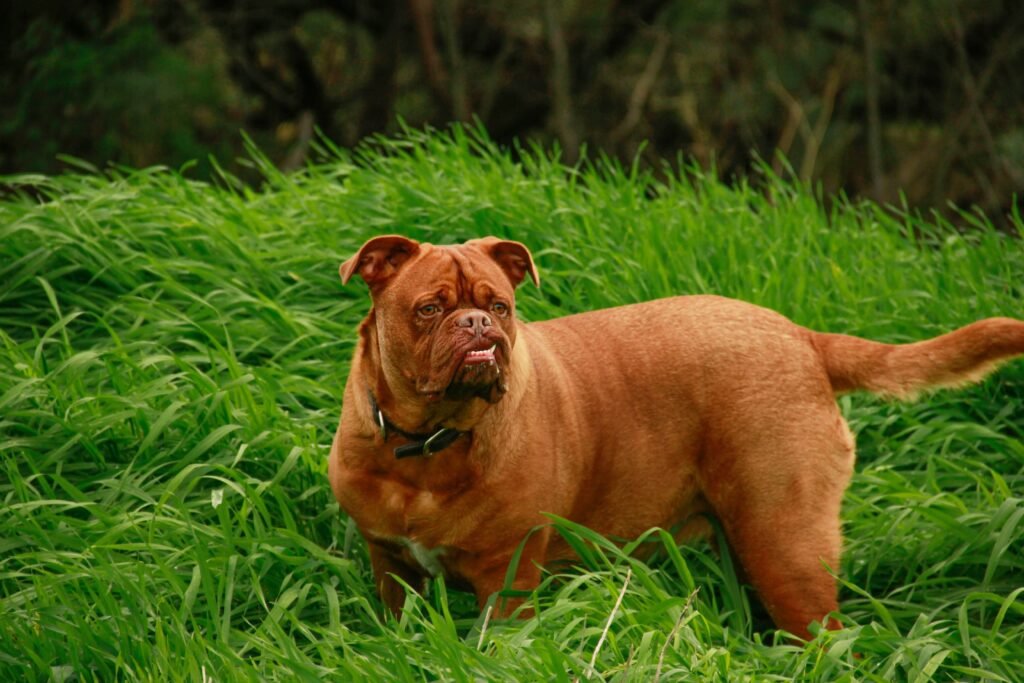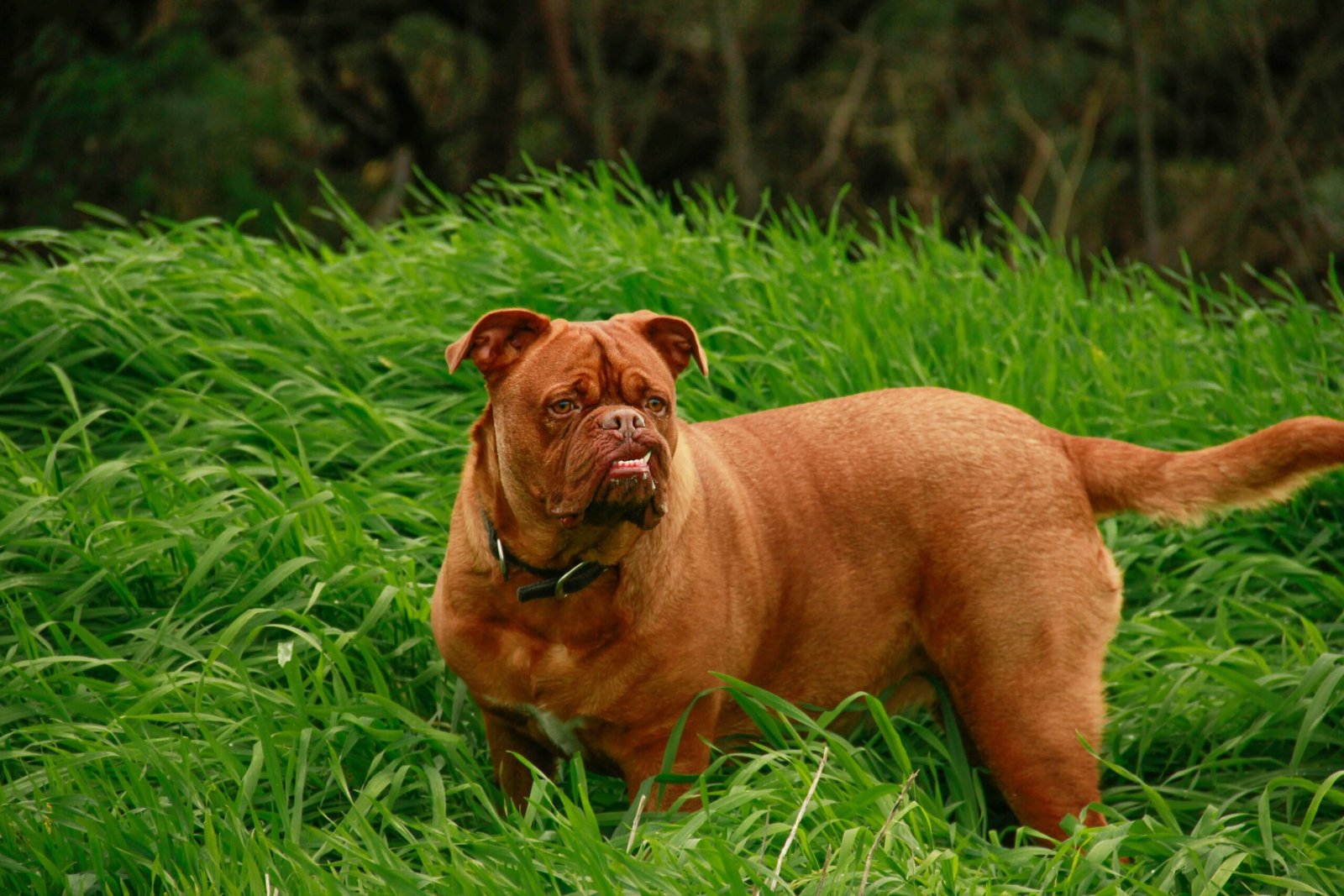Understanding Underbite in Dogs
An underbite, also known as a malocclusion, occurs when a dog’s lower jaw protrudes further than its upper jaw, causing the teeth to misalign. While some breeds are genetically predisposed to this condition, it can also develop due to environmental or health factors. Though an underbite may seem purely cosmetic, it can sometimes lead to dental or health issues that require attention. Whether you’re a proud owner of a bulldog, pug, or any other breed with this unique trait, understanding what an underbite means for your dog’s well-being is essential. Let’s explore the causes, effects, and management of underbites in dogs to ensure your furry friend stays happy and healthy.
Common Causes of Underbite in Dogs
An underbite can stem from various factors, ranging from genetics to developmental issues. Identifying the underlying cause is crucial for determining whether treatment is necessary.
Genetic Predisposition:
Certain breeds, such as boxers, bulldogs, and Shih Tzus, are more prone to underbites due to their genetic makeup.Jaw Growth Imbalance:
If a puppy’s lower jaw grows faster than the upper jaw during development, it can result in an underbite.Teething Issues:
Persistent baby teeth that don’t fall out on time can cause misalignment as adult teeth grow in.Injury or Trauma:
Damage to the jaw during growth stages may disrupt alignment and lead to an underbite.Nutritional Deficiencies:
Poor nutrition during a puppy’s developmental phase can impact bone and jaw growth, potentially contributing to malocclusions.
By understanding these causes, pet owners can better monitor their dog’s oral health and seek professional advice if needed.

Potential Health Implications of an Underbite
While many dogs with underbites live healthy lives, certain complications can arise if the condition is severe or left untreated. Being aware of these risks allows you to address them proactively.
Tooth Wear and Fractures:
Misaligned teeth may rub against each other, leading to excessive wear or even fractures over time.Difficulty Eating:
Severe underbites can make chewing uncomfortable or challenging, affecting your dog’s ability to eat properly.Gum Irritation or Infections:
Teeth that press into the gums can cause irritation, inflammation, or infections if not addressed.Speech-Like Sounds (Reverse Sneezing):
In some cases, an underbite can alter airflow, causing unusual sounds like reverse sneezing.Social Challenges:
Though rare, some dogs with pronounced underbites may face social discomfort around other animals due to their appearance.
Addressing these potential issues early ensures your dog remains comfortable and maintains a high quality of life.
Check this guide 👉Black Spots on Dog Teeth: Best 7 Expert Tips!
Check this guide 👉How to Clean Dog Teeth Naturally: Best 7 Expert Tips!
Check this guide 👉Understanding Dog Teeth Grinding: Best 7 Expert Tips!
Breeds Commonly Affected by Underbites | Signs Your Dog May Need Veterinary Attention |
|---|---|
Bulldog | Excessive drooling or difficulty eating |
Pug | Visible gum irritation or bleeding |
Boxer | Unusual sounds while breathing |
Shih Tzu | Tooth fractures or misalignment |
Boston Terrier | Persistent bad breath or oral pain |
Managing and Treating an Underbite in Dogs
If your dog has an underbite, there are several ways to manage or treat the condition, depending on its severity. Here are some options to consider.
Routine Dental Check-Ups:
Regular visits to the veterinarian or a dental specialist can help monitor your dog’s oral health and catch issues early.Orthodontic Devices:
In severe cases, braces or other orthodontic devices may be used to correct misalignment and prevent complications.Tooth Extractions:
If specific teeth are causing discomfort or damage, extraction may be recommended to alleviate pain.Soft Diet Adjustments:
For dogs with difficulty chewing, switching to softer food can make mealtime easier and more enjoyable.Pain Management:
Anti-inflammatory medications or other treatments may be prescribed to manage discomfort caused by an underbite.
With proper care and intervention, most dogs with underbites can live happy, healthy lives without significant issues.
Preventing Underbite-Related Problems
Taking preventive measures can help minimize the risk of complications associated with an underbite. These steps promote long-term oral health for your dog.
Monitor Puppy Development:
Keep an eye on your puppy’s jaw growth and teething process to identify abnormalities early.Provide Chew Toys:
Safe chew toys encourage healthy jaw development and reduce the risk of persistent baby teeth.Maintain a Balanced Diet:
Ensure your dog receives proper nutrition to support bone and dental health during critical growth stages.Schedule Regular Vet Visits:
Routine check-ups allow veterinarians to detect and address potential issues before they worsen.Practice Good Oral Hygiene:
Brush your dog’s teeth regularly and use dental products designed to reduce plaque and tartar buildup.
Proactive prevention ensures your dog’s underbite remains manageable and doesn’t negatively impact their overall well-being.
Signs Your Dog Has an Underbite
Recognizing an underbite early can help you address potential issues before they escalate. Here are some signs to look for in your dog’s appearance and behavior.
Visible Jaw Misalignment:
The lower jaw protrudes noticeably beyond the upper jaw, creating a distinct “underbite” look.Chewing Difficulties:
Your dog may tilt their head or struggle while chewing food or treats.Excessive Drooling:
Difficulty closing their mouth properly can lead to increased drooling, especially during meals.Unusual Facial Appearance:
Some dogs with underbites may have a slightly asymmetrical or unique facial structure.Behavioral Changes:
If your dog seems reluctant to eat or shows signs of oral discomfort, it could indicate an issue related to their underbite.
Early detection allows you to take proactive steps to ensure your dog’s comfort and well-being.
Benefits of Early Intervention
Addressing an underbite early in your dog’s life can prevent complications and improve their long-term health. Here’s why early intervention matters.
Prevents Dental Damage:
Timely treatment reduces the risk of tooth wear, fractures, or gum injuries caused by misaligned teeth.Improves Eating Habits:
Correcting an underbite can make chewing easier, ensuring your dog receives proper nutrition.Reduces Pain and Discomfort:
Early intervention minimizes the likelihood of chronic pain or irritation associated with severe underbites.Enhances Breathing Efficiency:
Aligning the jaws can improve airflow, reducing respiratory issues in brachycephalic breeds.Boosts Confidence:
Addressing physical abnormalities can help your dog feel more confident and comfortable in social settings.
Taking action early sets the foundation for a healthier, happier life for your dog.
How to Support a Dog with an Underbite
Caring for a dog with an underbite involves patience, dedication, and a few adjustments to their routine. These tips can help you provide the best care possible.
Choose Appropriate Toys:
Opt for soft, durable toys that won’t exacerbate dental issues or cause further misalignment.Adjust Feeding Methods:
Use elevated bowls or slow feeders to make eating easier for dogs with chewing difficulties.Stay Consistent with Oral Care:
Incorporate regular brushing and dental cleanings into your dog’s routine to maintain oral hygiene.Monitor Weight and Nutrition:
Ensure your dog maintains a healthy weight, as obesity can worsen joint and dental strain.Celebrate Their Uniqueness:
Embrace your dog’s underbite as part of what makes them special, and focus on providing love and care.
With these strategies, you can create a supportive environment where your dog thrives despite—or because of—their underbite.
Frequently Asked Questions About Dogs with an Underbite
Is an underbite painful for dogs?
Not usually, unless it causes jaw misalignment or dental issues.
Can an underbite be corrected?
In rare cases, orthodontic procedures may help, but they’re typically unnecessary unless recommended by a vet.
Does an underbite affect a dog’s lifespan?
No, as long as proper care is taken to address any related health concerns.
Are underbites genetic?
Yes, they are often inherited traits seen in specific breeds.
Should I avoid adopting a dog with an underbite?
Absolutely not! These dogs are just as loving and wonderful as any other.
Embracing Your Dog’s Unique Smile
An underbite is just one of the many traits that make your dog special. While it may require extra attention to ensure their comfort and health, it doesn’t define their happiness or quality of life. By staying informed, monitoring their oral health, and seeking professional guidance when needed, you can provide the best care possible for your furry companion. Remember, every dog deserves love and acceptance, regardless of their quirks or imperfections. Celebrate your dog’s individuality, and enjoy the joy they bring to your life—one wagging tail at a time!
Do Cats Have Taste Buds? Best 7 Expert Tips! – Discover how cats experience flavors and why their taste is so unique.
Do Dogs Have Taste Buds? Best 7 Expert Tips! – Discover how dogs experience taste, their preferences, and what it means for their diet and health.
Can Cats Taste Sweet? Best 7 Expert Tips! – Discover why cats can’t taste sweetness, how it affects their diet, and tips to keep them healthy and happy.
Can Dogs Taste Sweet? Best 7 Expert Tips! – Discover how dogs perceive sweetness, which foods are safe, and tips to manage their sweet cravings responsibly.





